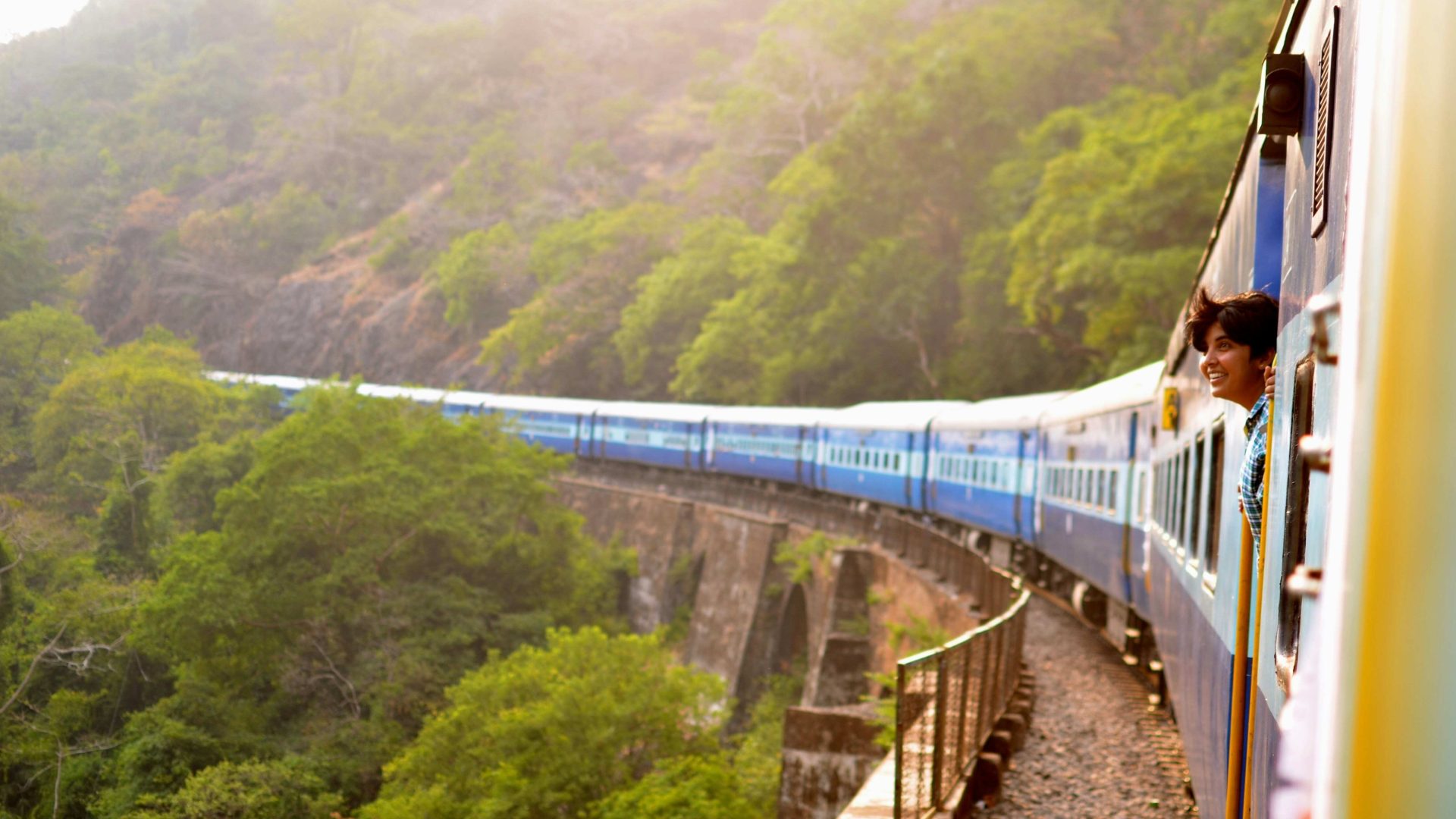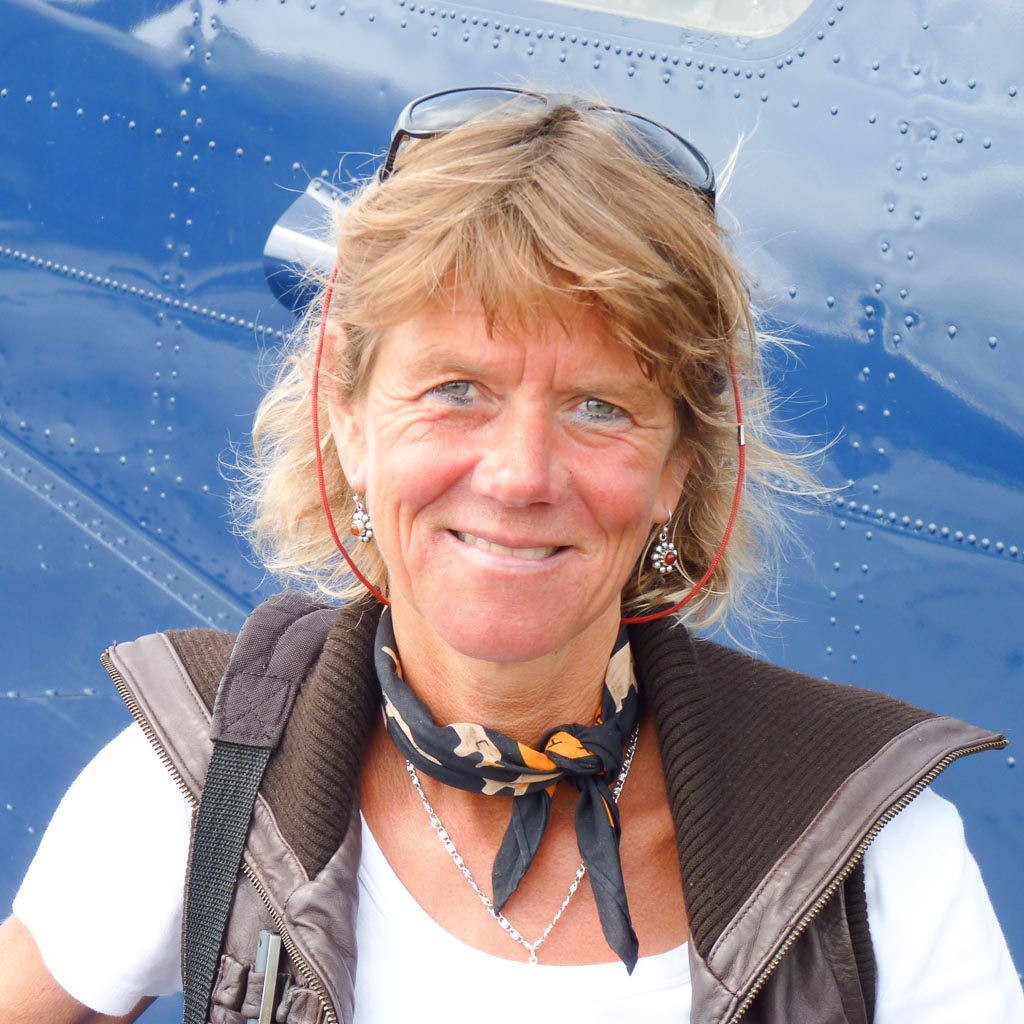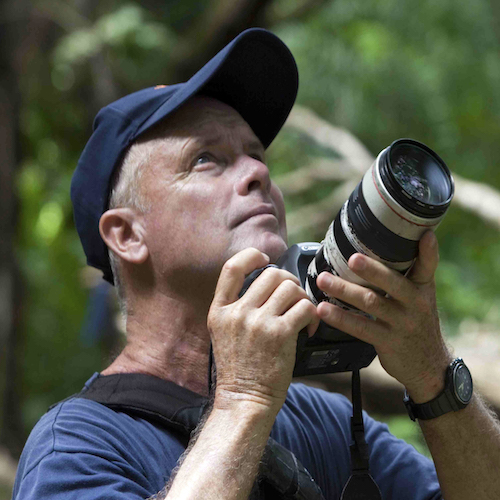
Haven’t you heard? Train travel is romantic again. But what’s driving this sudden boom in slow travel?


Haven’t you heard? Train travel is romantic again. But what’s driving this sudden boom in slow travel?
Following a year of news about European countries doubling down on rail options to reduce short-haul flights, Intrepid Travel (which owns Adventure.com) has announced 40 new train-based trips across the world—tapping into a growing global demand for both rail travel and slow travel.
Many of the trips are tried-and-true Intrepid itineraries where short flights have been replaced by rail options, including some sleeper trains—a mainstay of adventure travel for almost 200 years. Others include the brand-new Trans-Mongolian Railway Adventure trip, following a 1940s railroad from Beijing to Ulaanbaatar, Mongolia.
Intrepid estimates that it will nix 4,000 flights by shifting to trains on these journeys.
“Intrepid’s rail journeys offer travelers an added dimension of discovery, allowing customers to travel slower, experience more of the countryside and have more opportunities for local interaction,” the company said in a press release about the new offerings. “Each rail trip will be accompanied by one of Intrepid’s local leaders, who will not only help travelers navigate complex routes and stations, but also maximize the experiences during rest stops and overnight stays.”
Pick up any travel magazine these days, and you might be under the illusion that train travel is a hot new trend, as if it’s a revelation and only just now coming into vogue. But look at the numbers and it seems travelers have been demanding more rail options for well over a decade. The UK had a record-breaking 1.8 billion rail passengers from 2018 to 2019. Train journeys grew more slowly in the US from 2013 to 2019 (figures as a result of COVID-19 yet to be recorded), but that may change in the near future, as President Biden unveiled $8 billion in high-speed railway investments last year.
According to Intrepid, 92 percent of UK travelers want to take a train on their next trip. And governments across the world seem to be listening to passengers’ calls for more, better, cheaper, and faster trains.
Last year, Mexico opened Tren Maya, a long-distance train around the Yucatán Peninsula. It expects to transport 3 million passengers per year on the new railroad. Also in the last year, France, Portugal, and Germany started offering unlimited budget-friendly rail passes for EUR49 (some terms and age-based conditions apply, of course). And in an effort to combat the climate impacts of flying, some European countries are working on barring short-haul domestic flights where those journeys can be replaced by trains for relatively little extra time.
Intrepid isn’t the first company to ignite a new focus on flight-free adventures, but its announcement may signal a shift in how travelers see transportation as a part of their overall adventure. Several years ago, The Guardian shifted its travel coverage to exclude most trips that can’t be done without traveling. And while Interrailing has long been the hallmark of budget-friendly European gap years, and ultra-luxury train travel has always been available to those who can afford it, incorporating long-distance rail journeys into a guided itinerary presents a new option for travelers who find themselves somewhere in between.
Demand for overland journeys has skyrocketed in recent years as many people have cut back on flying due to environmental concerns. Last year, tour operator Responsible Travel told The Independent that interest in its slow travel trips was up 220 percent from 2021 to 2022.
Byway, too, has answered travelers’ requests for more environmentally-friendly adventure options. The company claims to be the first 100 percent flight-free travel company, offering self-guided train journeys across Europe. It was founded during lockdown by “lifelong overlander” Cat Jones. Byway plans overland journeys by train and ferry that rely largely on the Interrail pass, which offers travelers flexible, unlimited travel between destinations. But rather than staying in budget hostels or sleeping upright in second-class carriages, the company books its guests in hotels, inns, and on sleeper trains or ferries.
Traditionally, such trips have been more challenging for travelers to book on their own, as local and regional rail and bus options are often managed by unique booking systems that may or may not be available in the traveler’s native language. But for the adventure traveler, this can be a bonus—and taps into the slow travel mindset driving visitors to engage more thoughtfully with local life. On a revamped 15-day tour of Vietnam, replacing flights with trains now allows Intrepid travelers experiences they would have missed otherwise.
“Travelers are also given two additional opportunities to experience local culture: Meeting a martial art master in Quy Nhon and visiting a unique ancient citadel,” the company said, “both of which were only made possible by the train route.”
Intrepid’s new trips are flight-free from the point the trip begins—travelers will still need to get themselves to the starting point, after all. The company’s team is on hand to help travelers book flights to and from their departure and end points, Intrepid said via email, and has added support for the Eurostar so London-based travelers can take the train to Paris rather than flying. Four of its new trips are flight-free from London. The journeys are not round-trip, however, meaning that travelers will likely need to fly home from their trip end point. But this, too, may change in the future, the company said, as customers’ needs and feedback shape the new category.
***
Adventure.com strives to be a low-emissions publication, and we are working to reduce our carbon emissions where possible. Emissions generated by the movements of our staff and contributors are carbon offset through our parent company, Intrepid. You can visit our sustainability page and read our Contributor Impact Guidelines for more information. While we take our commitment to people and planet seriously, we acknowledge that we still have plenty of work to do, and we welcome all feedback and suggestions from our readers. You can contact us anytime at hello@adventure.com. Please allow up to one week for a response.

Kassondra Cloos is a travel journalist from Rhode Island living in London, and Adventure.com's news and gear writer. Her work focuses on slow travel, urban outdoor spaces and human-powered adventure. She has written about kayaking across Scotland, dog sledding in Sweden and road tripping around Mexico. Her latest work appears in The Guardian, Backpacker and Outside, and she is currently section-hiking the 2,795-mile England Coast Path.






Can't find what you're looking for? Try using these tags: